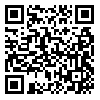BibTeX | RIS | EndNote | Medlars | ProCite | Reference Manager | RefWorks
Send citation to:
URL: http://jbrms.medilam.ac.ir/article-1-150-en.html
Reality therapy is a particular approach in adolescent development and independence that repeatedly emphasized on the disagreeable relationships and self-control to encourage personal growth. Unfortunately, we could not find any study in the context of effectiveness of training reality therapy concepts on parent-child conflicts and self-efficacy. Therefore, this study were done with the purpose of considering the effectiveness of training reality therapy concepts on parent-child conflict father-son and self-esteem in adolescents in Ilam province. Materials and methods: This study was a semi-experimental research which its statistical community consisted of all first and second grade students of Motahari and Shahriari high schools in Ilam province during 2014-2015. Nearly, 30 students were selected by a random sampling method, and assigned into intervention and control groups. To appraise dependent variable, the Murray Strauss Parent-child conflict (father-son version) questionnaire of self-concept as well as the Coppersmith self-respect questionnaire were used in the study. Results: The results of multivariate analyses of covariance revealed that the posttest scores of parent-child (father-son) conflict were considerably reduced in the experimental group compared with the control group (P<0.05), and the self-esteem scores in the experimental group was significantly increased than in the control group (P<0.01). Conclusion: Reality therapy training program caused to diminish parent-child conflicts and escalating self-esteem in adolescents and therefore, it is recommended that this program be used to reduce parent-child, father-son conflicts and increase self-esteem in the educational, psychological and educational levels along with other programs.
Received: 2015/04/22 | Accepted: 2015/07/30 | Published: 2015/09/14
| Rights and permissions | |
 |
This work is licensed under a Creative Commons Attribution-NonCommercial 4.0 International License. |




